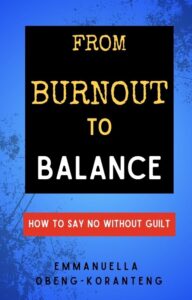Table of Contents
Just being educated (formal and Informal) doesn’t earn you a seat on the high table. I know, all that money and time, right: I wish it worked like that too. Job searching can be a daunting task, but when you finally get notified of your interview, you need to grab the opportunity once and for all. You must be probably asking, “Ok, so how do I prepare for an interview in Ghana? Don’t worry, we’ll get to the nitty-gritty soon.
Passing an interview goes beyond rattling your motivation speech, awards in school or even earning high grades. The one-size-fits-all approach does not apply here: to prepare for an interview in Ghana, you need to know yourself. Let’s engage as we discuss what a complete interview guide sample entails.
How can I pass my interview?

This interview guide sample will come in handy.
-
Believe in yourself, otherwise, no one else will, no matter how hard you prepare.
-
Research well about the company or institution.
-
You need the right kind of mindset.
Think like you’ve already gotten the job. Be open-minded.
4. Whether it’s who you know or who knows you, there’s still some knowing.
This is where you’ll need the network you’ve established over the years. However, you’re sure to make a mess if you lack the attitude and skills to manage the position.
5. Be confident
6. Use your analytical skills and critical thinking.
7. Practice, practice, practice and get someone to give you feedback on your performance or record yourself while looking in the mirror. Keep a small sheet or notebook with basic info to remember.
8. Listen to the news and be abreast with the changes in the organisation.
You may as well find some challenges that your skills or passion can satisfy. Pitch yourself in that area and it might probably be what the employers are looking for.
What to do on the day of the interview.

-
Be there at least 45 minutes or 60 minutes before time.
-
Look decent, like you already work there.
You don’t necessarily need to wear anything expensive. Have the corporate look, mean business. Corporate colours like black, blue-black and dark brown are appropriate. No flamboyant colours like that of a peacock are advisable.
READ ALSO: 12 practical ways to save money this year
3. Don’t be nervous.
You could imagine the faces of people you’re comfortable with, as the panel, instead.
4. Take in something light as breakfast, nothing that would upset your stomach.
If you’re going to pass, at least hunger shouldn’t be the reason you couldn’t think clearly.
5. Do not ask other interviewees what questions they were asked. It’s a trap!
6. Remember that your job experience doesn’t begin with your first job after graduation. Your job experience includes your internships, volunteering job or National Service, as long as it’s related to the job you’re applying for.
7. Be knowledgeable about the info on your CV and pitch your greatest skills or talents.
Memorize them if you have to, but make sure everything you have in there is related to the job you’re applying for. Your uniqueness is seen in your talent or passion, and if it’s in the same line with your field, that’s a plus.
Have credible referees, ones who can vouch for you.
8. Do not be provoked, no matter what!
Emotional intelligence is important, especially when you’re in a dicey situation at work. This could be a test unless of course it makes you feel discriminated against or it’s truly insulting, especially if you are physically challenged in any way. That too could be a test of morality.
If it’s something personal, you could say, “I wish not to discuss personal affairs with work, but I’ll be glad to walk you through….” or “I feel rather uncomfortable discussing this….”
How you respond and what you say are as important.
9. If you did not hear a question well, ask for it to be repeated or further explained.
This shows you cherish clarity in tailoring solutions to challenges. It’s better than to get it wrong or answer out of place, only to get follow-up questions and beads of sweat on your brows.
Let me ask this question again. How do I prepare for an interview in Ghana? Seems more difficult than it is, but it’ll be worth the job in the long run!
How to introduce yourself at an interview
Obviously, you’d have to enter the interview room or hall in order to be asked to introduce yourself. Do well to GREET, Good morning, Good afternoon or Good evening, first, even if you use Hello. Eg. “Hello, Good morning” or just “Good morning”. Stay with me through this interview guide sample and you’ll be fine.
Many people panic when being asked the popular question, “Tell me about yourself”. This simply means, tell me what it is about you that is relevant to this job or organisation. This may or may not include the following, depending on the job you’re applying for and what you have on your CV.
-
Mention your full name, no nicknames or short forms of your name.
Eg. Kwaku Bonsu Afrifa
2. Your passion / educational background.
What you’re passionate about, you make it work. The panel expects you to link what you have studied or your talent/skills to the job in any way you can. This should be solid. Your educational background or first-class degree is not all they look out for. Demonstrate your willingness to learn and apply your skills to assist the company.
3. Your purpose for attending the interview.
This should include how you heard about the advertisement and why you decided to apply or be part of the organisation.
4. Make eye contact and watch your body language.
5. It’s so important, to be honest with the panel. At the same time if you need to buy a little time to critically think about what to say or where to start, avoid saying, “I have to think about it first”.
Trick: delay a little by saying, “If my understanding serves me right, are you saying……”
NB: If you have been job searching for a while, get something doing in the meantime, even if it’s doing laundry for neighbours. It’s nothing to be ashamed of. This shows the extent to which you can go to make something work. Take a short course, start blogging, Youtubing or whatever genuine means you decide on.
10 most frequently asked interview questions and answers in Ghana
-
Tell us about yourself.
Refer to the previous section.
2. Why should we hire you?
Highlight the skills you have that make the job a perfect match for you.
3. What new development are you bringing on board?
Basically, what are you going to do differently that will drive sales, and more clients to the company in the next 5 years, what are your plans regarding the organisation?
4. How did you hear about this company?
Be honest about this one. TV, radio, through a referral or someone you know in the company.
5. Why did you leave your previous job?
You could say, “It wasn’t challenging enough for you”, “time is taken off began to affect the relationship with your family” or “you with to be more fulfilled at what you do”. Again, use your discretion and be honest. If you had a bad reputation, you will be found out sooner or later and the consequences will be severe.
6. What are your expectations if chosen for this role?
A well-researched profile on the job role will guide you.
7. What are your strengths and weaknesses?
Your strengths should be your RECENT achievements, and your weaknesses, something you’re not so good at but is looking to improve. Eg. Interpersonal relationships/teamwork, public speaking, etc.
8. What are your hobbies?
Don’t mention reading if you cannot even recall details of the last book you read or travelling if you have never been outside your region, or swimming if you have never even seen a pool. You may be asked detailed questions on this or to demonstrate your craft.
10. How much should we pay you?
“With the value, I’m bringing on board, I expect to be paid [give a range]. Prior to this, you should’ve researched the salary ranges of people in this role.
11. How are your skills related to this job?
In a way, your skills, academic knowledge or passion should be in tune with the mandate, vision or mission of the organisation or show that you’re ever ready to learn on the job.
Other questions to consider in your interview guide sample
-
What other languages do you speak?
-
Are you prepared to work anywhere within the country?
-
What is your contribution to nation-building?
-
What do you think about [this topic]?
-
You may be put on the spot to demonstrate a particular skill, like singing, painting or any other art or craft.
How do I prepare for an interview in Ghana –ask the panel a few questions too
Focus more on clarity than being an interviewer yourself or appearing to be “too-known”.
-
What are my expectations in this new role?
-
What is the job schedule?
-
Are there any rules to comply with, should I be considered for the job?
-
Do you always work remotely or do you undertake fieldwork sometimes?
-
Are there any work policies regarding health and safety? (This is where you make it clear if you have a condition). Be honest about this sooner than later.
READ ALSO: Preparing for an interview
Nursing interview questions and answers in Ghana
Entering into nursing school or other fields like law may require an interview (s) as well. This is to prove or demonstrate your readiness to learn and commit to improving the industry and the lives of others. Some additional questions may be:
-
What is your motivation/ why do you want to be a nurse?
In this case, personal experiences will help a great deal.
2. Tell us about your most stressful experience and how you handled it.
Elements involved should include empathy, compassion, communication skills and integrity. Mention only what is relevant to the question.
They want to know your ability to handle tough situations; your values, judgments and morals.
3. What is the latest news in the nursing field?
Our lives are consciously or unconsciously shaped by what we choose to listen to, say or do. If you follow nursing news, chances are you have great interest in the field and that should earn you some points.
4. What do you think are your bosses’ or colleagues’ opinions about you?
5. How would you handle a conflict situation between you and your lecturer?
6. What qualities do you look out for in a nurse?
7. Which of these qualities do you possess?
8. How do you see the medical field in Ghana?
9. Why is communication important to a nurse?
This is how to prepare for a nursing interview.
Ghana Scholarship Secretariat Interview
Tell me, “Which student in Ghana doesn’t need a scholarship?”. Your guess is as good as mine. However, this is not automatic, you’ll have to prove you’re worth it, or you’ll even return to Ghana (lol, just kidding).
These are some questions to consider.
-
Why do you need a scholarship?
-
Why should you be given a chance?
-
How will this scholarship opportunity benefit you?
-
How will society benefit?
-
What are you passionate about?
Speak about the activities you’ve been involved in or programmes you’ve volunteered in recently which is in line with the scholarship programme.
If you’re not given the position, then it’s their loss, not yours. This complete interview guide is sure to have cleared all doubts about “how do I prepare for an interview in Ghana” and how to answer interview questions confidently. Leave a comment if you’d want me to specifically address certain issues during interviews in Ghana. On that note, watch out for part 2 of this post.



This is greattt
Glad you found it useful!
Pingback:5 savvy steps on how to write CV in Ghana : Jobs in Accra - Paige Writers Gh
Pingback:5 subtle signs you’re not satisfied with your job in Ghana - Paige Writers Gh